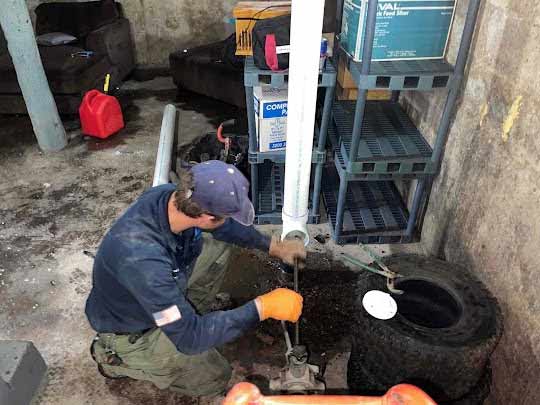Sewer backups are the worst kind of plumbing emergency to have in your home. When the contents of your sewer line flow back into your home instead of emptying into the city sewer lines or your septic tank system, you are often looking at several thousand dollars in repair costs.
In addition to the cost of fixing the damage to the sewer line and your home, you also have to deal with the gross nature of this backup. A sewer backup may deposit raw sewage inside your home, exposing you and your family to unpleasant odors and the risk of illness, warns LevelPMG.com.
Why do sewer lines back up into the home?
Blockages inside the sewer lines cause all sewer line backups. These blockages happen for several reasons:
- They may be an outcome of how the home’s drains are used.
- Sewer backups can also be the result of natural events.
- Sewers sometimes back up because of poorly maintained or aged sewer pipes.
When the backup is localized to one drain inside the home
If the backup is only happening in one of the drains in your house, it means there is a clog or blockage in the drain related to that fixture. For instance, if all other drains in the home are working perfectly but a single drain – sink, shower, or toilet – is slow, the problem is not in your home’s main sewer line.
You should look for the cause of the problem in the drain for that specific fixture. If this is a toilet drain, it could be that a non-flushable object is lodged in the drain. The drain could be blocked by hair or soap scum if it is a bathroom. You may have food waste inside the P-Trap if it is a kitchen drain.
Sewer backups affect every drain inside your home
If all the drains in your home are backing up at the same time or the sewer is backing up into the basement, the problem isn’t with the individual drains for your home’s plumbing fixtures but with your main sewer line. What is the reason for this kind of back up?
There are many reasons your home’s main sewer line may become clogged; they are explained below. Note that some listed reasons may apply to blockages within the individual drains for specific plumbing fixtures and not just your home’s main sewer line.
Blockages caused by FOGs
You should never flush fats, oils, and grease (FOGs) into your drains. These tend to congeal once they get inside the sewer lines. Instead of flowing through the pipes, FOGs clump together or form a sticky lining on pipe surfaces. These act as a trap for debris passing through the pipes until they accumulate enough material to block the lines.
Blockages by food waste
Food items that should never go into your drains include coffee grounds, eggshells, starchy foods like rice or potatoes, and hard objects like bones. Starchy foods swell inside the drain, and coffee grounds build up inside the pipes. Dispose of these items in the trash.
Blockages by non-flushable items
Hair, female sanitary products, wipes, and disposable diapers are a few of the items that should not be allowed into the drains. If they find their way into the drain, they can cause serious problems by stopping or slowing the wastewater flow.
Blockages by tree roots
Tree roots within and outside your property can damage your main sewer line and prevent waste from passing through them. Tree roots don’t even have to puncture your sewer lines to cause sewer backups in your home. Tree roots may grow around the pipes and dislodge them from their position.
Blockages caused by earth movements
Sewer pipes can be moved from their original position as your home settles. Due to seismic activity, upward or downward movements of pipes will push sections of the sewer lines above or below their average level. These changes will force the water inside the pipes to slow down, leading debris to settle in the area and eventually block the pipe.
Blockages caused by aging pipes
Old and worn-out sewer lines are more likely to cause sewage to back up into your home. This is because their diameter may become narrowed due to the corrosion, rust, and sedimentation that have happened over the years. This problem is more common with sewer pipes that are made of metal.
Blockages caused by the city sewer systems
Although it is less common, blockages inside the city’s sewer lines may cause a sewer backup in your home. Typically, if the sewer backup is caused by a problem with the city’s sewer lines, the issue will not be limited to your home. If your neighbors are also facing the same problem, you may want to contact the city officials.
